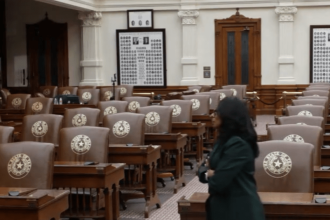The White House’s Cost Accounting Standards Board (CAS) has proposed eliminating more than 60 redundant accounting rules that have remained largely unchanged for over 50 years. The board published two proposed rules on Sept. 10, 2025, aimed at cutting requirements that force contractors to keep overlapping sets of books.
The proposals are part of the administration’s broader push to “drastically reduce regulatory burdens” and would affect nearly $750 billion in annual contract spending. Instead of keeping duplicate records, contractors would follow Generally Accepted Accounting Practices (GAAP), the same standards used in private business. That change could streamline operations for North Texas defense giants like Lockheed Martin in Fort Worth and Raytheon in McKinney.
“Holding contractors responsible for properly and transparently accounting for their costs is good stewardship, but forcing contractors to maintain overlapping books and records is wasteful and creates barriers that discourage talented companies from working with the Government to meet the needs of our taxpayers,” said Dr. Kevin Rhodes, senior advisor to OMB Director Russell Vought.
The rules specifically address compensated personal leave, capitalization and depreciation of capital assets, and acquisition costs of material. Agencies would rely on GAAP rather than separate federal standards.
The changes would affect contractors supporting missions from national defense to energy projects, space exploration, and health care. Current rules require companies to follow both GAAP and CAS, a duplication that emerged decades ago when GAAP was less rigorous. But shareholder demands have since strengthened GAAP, creating significant overlap between the two.
The CAS Board expects to finalize the rules by early next year (2026). Related efforts by the Office of Federal Procurement Policy seek to streamline the 2,000-page Federal Acquisition Regulation back to essential statutory rules, further reducing reliance on CAS.
The CAS Board, chaired by OMB’s Office of Federal Procurement Policy, issues standards to ensure contractors properly account for costs when the government must rely on those figures to set contract prices or reimburse expenses.
Because corporate accounting has grown more rigorous under shareholder scrutiny, GAAP and CAS now substantially overlap — reinforcing the White House’s case for eliminating redundant standards.









